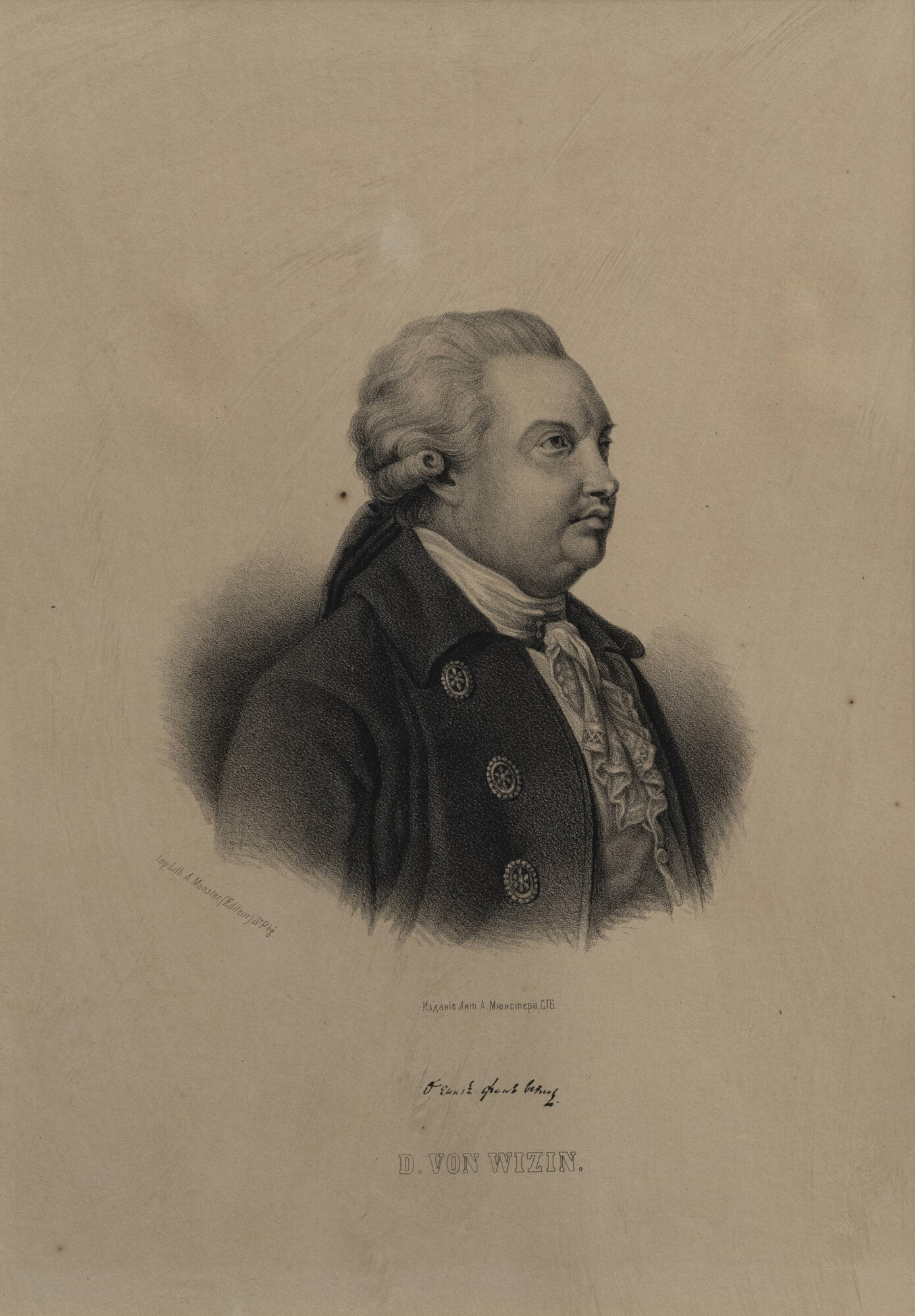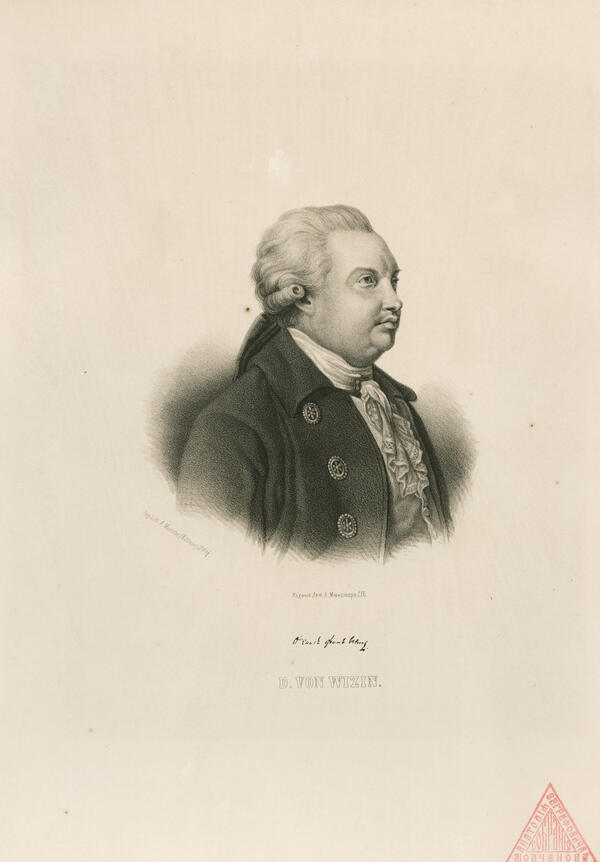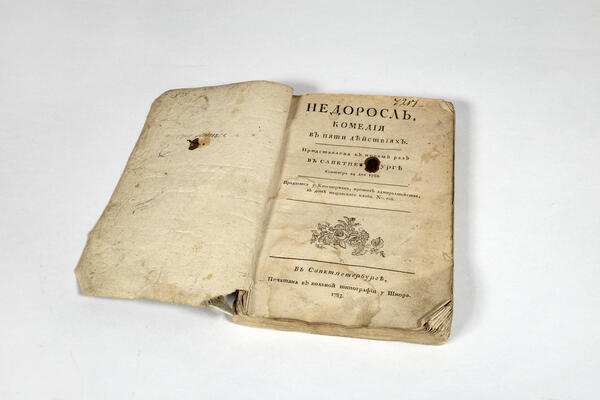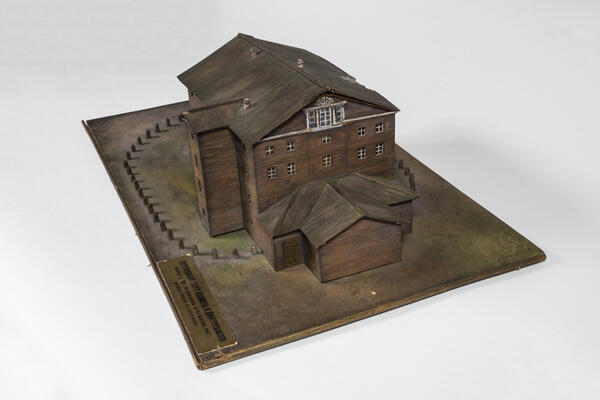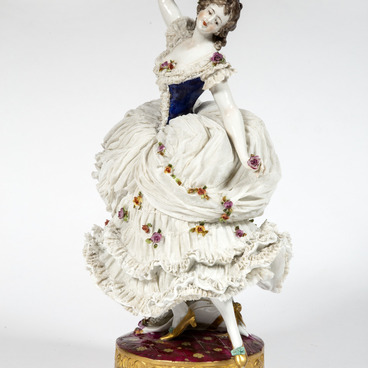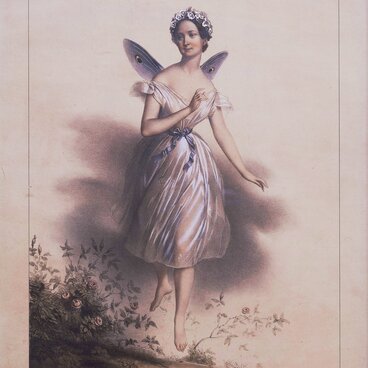A descendant of a German baron, the writer Denis Ivanovich Fonvizin (1845–1892) demonstrated exceptional abilities since childhood. During his years at the School for Nobles of the Moscow University, he was awarded Gold and Silver medals on numerous occasions. In 1760, Fonvizin was introduced to Mikhail Vasilyevich Lomonosov as one of the best students. This journey to Saint Petersburg became a life-changing event for Fonvizin. He saw a professional theatrical production and met actors Fyodor Volkov and Ivan Dmitrevsky as well as playwright Alexander Sumarokov.
In the history of Russian culture, Fonvizin is known as the founder of the Russian comedy of manners. In 1769, he wrote his first play “Brigadier.” It achieved success, and Fonvizin even earned flattering comparisons with the French master of comedy Molière.
Fonvizin’s most important work “The Minor” was written in 1782. Fonvizin was inspired to write this comedy when he was in France. While working on this play, he used articles from French satirical magazines and referred to the works of Voltaire and Rousseau.
Fonvizin strictly adhered to the classical unities of time, place and action. He also used symbolic names for his characters such as Skotinin (from the Russian “beast”), Starodum (“old thought”), Pravdin (“truth”), Vralman (“liar”), and Tsyfirkin (“numeral”). Many lines from this play are frequently quoted. A classic example is “I do not want to study, I want to get married.”
By describing the moral system and the everyday life of provincial nobles, Fonvizin created a sharp satire on contemporary Russian society. No wonder that the comedy faced censorship issues. The play premiered at the Free Russian Theater in Saint Petersburg. The role of Starodum was performed by Ivan Dmitrevsky, while Yakov Shumsky delivered a touching while also an amusing performance as nanny Yeremeyevna.
The vivid images, realistic dialogues, and the creative use of language made the comedy a true success. Some contemporaries even reported that spectators would express their admiration by throwing wallets with money on stage. After the successful premiere in Saint Petersburg, the play was staged in Moscow. “The Minor” became the most popular production in the repertoire of Russian theaters in the 18th century.
In the history of Russian culture, Fonvizin is known as the founder of the Russian comedy of manners. In 1769, he wrote his first play “Brigadier.” It achieved success, and Fonvizin even earned flattering comparisons with the French master of comedy Molière.
Fonvizin’s most important work “The Minor” was written in 1782. Fonvizin was inspired to write this comedy when he was in France. While working on this play, he used articles from French satirical magazines and referred to the works of Voltaire and Rousseau.
Fonvizin strictly adhered to the classical unities of time, place and action. He also used symbolic names for his characters such as Skotinin (from the Russian “beast”), Starodum (“old thought”), Pravdin (“truth”), Vralman (“liar”), and Tsyfirkin (“numeral”). Many lines from this play are frequently quoted. A classic example is “I do not want to study, I want to get married.”
By describing the moral system and the everyday life of provincial nobles, Fonvizin created a sharp satire on contemporary Russian society. No wonder that the comedy faced censorship issues. The play premiered at the Free Russian Theater in Saint Petersburg. The role of Starodum was performed by Ivan Dmitrevsky, while Yakov Shumsky delivered a touching while also an amusing performance as nanny Yeremeyevna.
The vivid images, realistic dialogues, and the creative use of language made the comedy a true success. Some contemporaries even reported that spectators would express their admiration by throwing wallets with money on stage. After the successful premiere in Saint Petersburg, the play was staged in Moscow. “The Minor” became the most popular production in the repertoire of Russian theaters in the 18th century.
